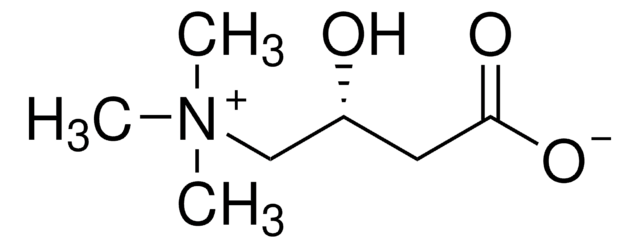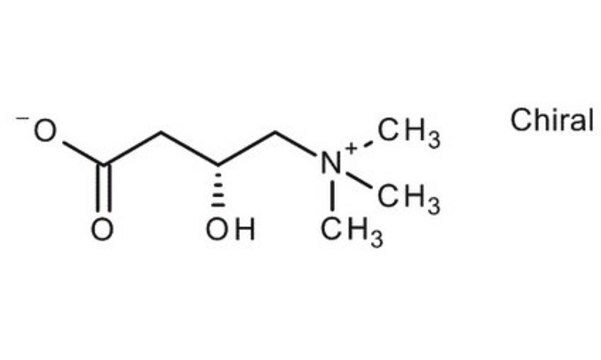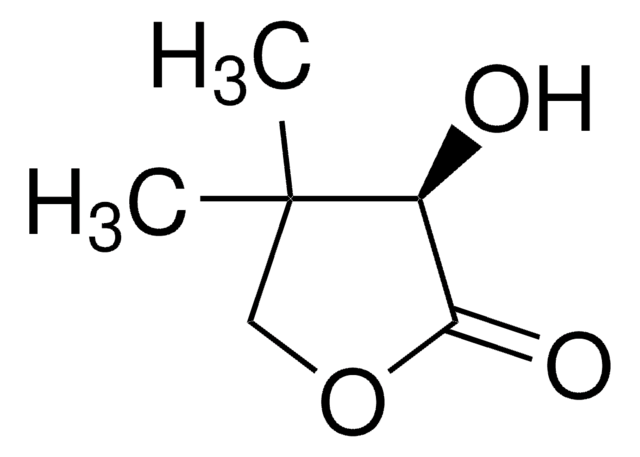Kluczowe dokumenty
L0399900
Levocarnitine
European Pharmacopoeia (EP) Reference Standard
Synonim(y):
L-Carnitine inner salt, (−)-(R)-3-Hydroxy-4-(trimethylammonio)butyrate, Vitamin BT
About This Item
Polecane produkty
klasa czystości
pharmaceutical primary standard
rodzina API
levocarnitine
producent / nazwa handlowa
EDQM
mp
197-212 °C (lit.)
Zastosowanie
pharmaceutical (small molecule)
Format
neat
ciąg SMILES
C[N+](C)(C)C[C@H](O)CC([O-])=O
InChI
1S/C7H15NO3/c1-8(2,3)5-6(9)4-7(10)11/h6,9H,4-5H2,1-3H3/t6-/m1/s1
Klucz InChI
PHIQHXFUZVPYII-ZCFIWIBFSA-N
Szukasz podobnych produktów? Odwiedź Przewodnik dotyczący porównywania produktów
Opis ogólny
Zastosowanie
Działania biochem./fizjol.
Opakowanie
Inne uwagi
produkt powiązany
Kod klasy składowania
11 - Combustible Solids
Klasa zagrożenia wodnego (WGK)
WGK 3
Temperatura zapłonu (°F)
Not applicable
Temperatura zapłonu (°C)
Not applicable
Wybierz jedną z najnowszych wersji:
Certyfikaty analizy (CoA)
It looks like we've run into a problem, but you can still download Certificates of Analysis from our Dokumenty section.
Proszę o kontakt, jeśli potrzebna jest pomoc Obsługa Klienta
Masz już ten produkt?
Dokumenty związane z niedawno zakupionymi produktami zostały zamieszczone w Bibliotece dokumentów.
Klienci oglądali również te produkty
Nasz zespół naukowców ma doświadczenie we wszystkich obszarach badań, w tym w naukach przyrodniczych, materiałoznawstwie, syntezie chemicznej, chromatografii, analityce i wielu innych dziedzinach.
Skontaktuj się z zespołem ds. pomocy technicznej






